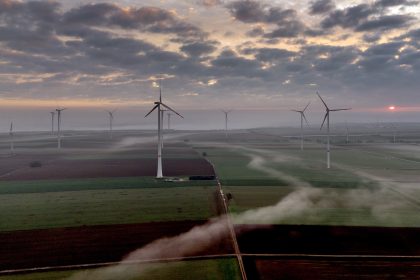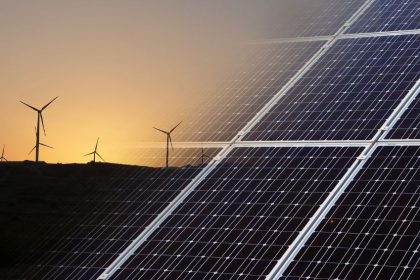Wind Energy Health Benefits Surge When Switch Is Flipped on Fossil Fuels

BOSTON — The health benefits associated with wind power could more than quadruple if utility operators prioritized turning down output from the most polluting fossil fuel-based power plants when energy from wind is available, according to a new study from the Massachusetts Institute of Technology.
Currently about 10% of electricity used in the United States comes from wind power, a source of energy that displaces greenhouse gas emissions and other air pollutants when used as an alternative to power from fossil fuel-based power plants.
But according to MIT researchers these health benefits would surge if fossil fuel-based power plants would reduce their output whenever wind-generated power is available.
The findings were published in the journal Science Advances.
For their study, researchers analyzed the hourly activity of wind turbines, as well as the reported emissions from every fossil fuel-based power plant in the country, between the years 2011 and 2017.
They traced emissions across the country and mapped the pollutants to affected demographic populations. They then calculated the regional air quality and associated health costs to each community.
The researchers found that in 2014, wind power that was associated with state-level policies improved air quality overall, resulting in $2 billion in health benefits across the country. However, only roughly 30% of these health benefits reached disadvantaged communities.
The team further found that if the electricity industry were to reduce the output of the most polluting fossil fuel-based power plants, rather than the most cost-saving plants, in times of wind-generated power, the overall health benefits could quadruple to $8.4 billion nationwide.
“We found that prioritizing health is a great way to maximize benefits in a widespread way across the U.S., which is a very positive thing. But it suggests it’s not going to address disparities,” said study co-author Noelle Selin, a professor at the Institute for Data, Systems, and Society and the Department of Earth, Atmospheric and Planetary Sciences at MIT.
“In order to address air pollution disparities, you can’t just focus on the electricity sector or renewables and count on the overall air pollution benefits addressing these real and persistent racial and ethnic disparities,” Selin said. “You’ll need to look at other air pollution sources, as well as the underlying systemic factors that determine where plants are sited and where people live.”
Selin’s co-authors are lead author and former MIT graduate student Minghao Qiu, Ph.D., ’21, now at Stanford University, and Corwin Zigler at the University of Texas at Austin.
In their study, the team looked for patterns between periods of wind power generation and the activity of fossil fuel-based power plants, to see how regional electricity markets adjusted the output of power plants in response to influxes of renewable energy.
In general, they observed that, in times when wind power was available, markets adjusted by essentially scaling back the power output of natural gas and sub-bituminous coal-fired power plants.
They noted that the plants that were turned down were likely chosen for cost-saving reasons, as certain plants were less costly to turn down than others.
The team then used a sophisticated atmospheric chemistry model to simulate the wind patterns and chemical transport of emissions across the country, and determined where and at what concentrations the emissions generated fine particulates and ozone — two pollutants that are known to damage air quality and human health.
Finally, the researchers mapped the general demographic populations across the country, based on U.S. census data, and applied a standard epidemiological approach to calculate a population’s health cost as a result of their pollution exposure.
The researchers then examined how the pattern of emissions and the associated health benefits would change if they prioritized turning down different fossil fuel-based plants in times of wind-generated power. They tweaked the emissions data to reflect several alternative scenarios: one in which the most health-damaging, polluting power plants are turned down first; and two other scenarios in which plants producing the most sulfur dioxide and carbon dioxide, respectively, are first to reduce their output.
They found that while each scenario increased health benefits overall, and the first scenario in particular could quadruple health benefits, the original disparity persisted: Communities of color and low-income communities still experienced smaller health benefits than more well-off communities.
This work was supported, in part, by the U.S. Environmental Protection Agency, and by the National Institutes of Health.
Dan can be reached at [email protected] and @DanMcCue

























